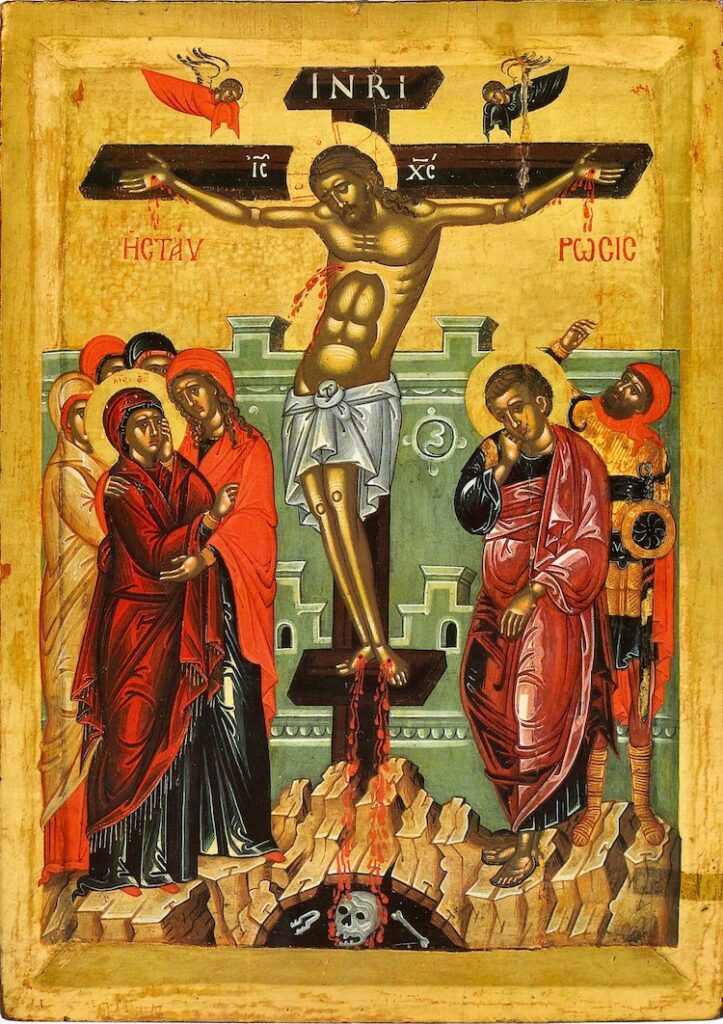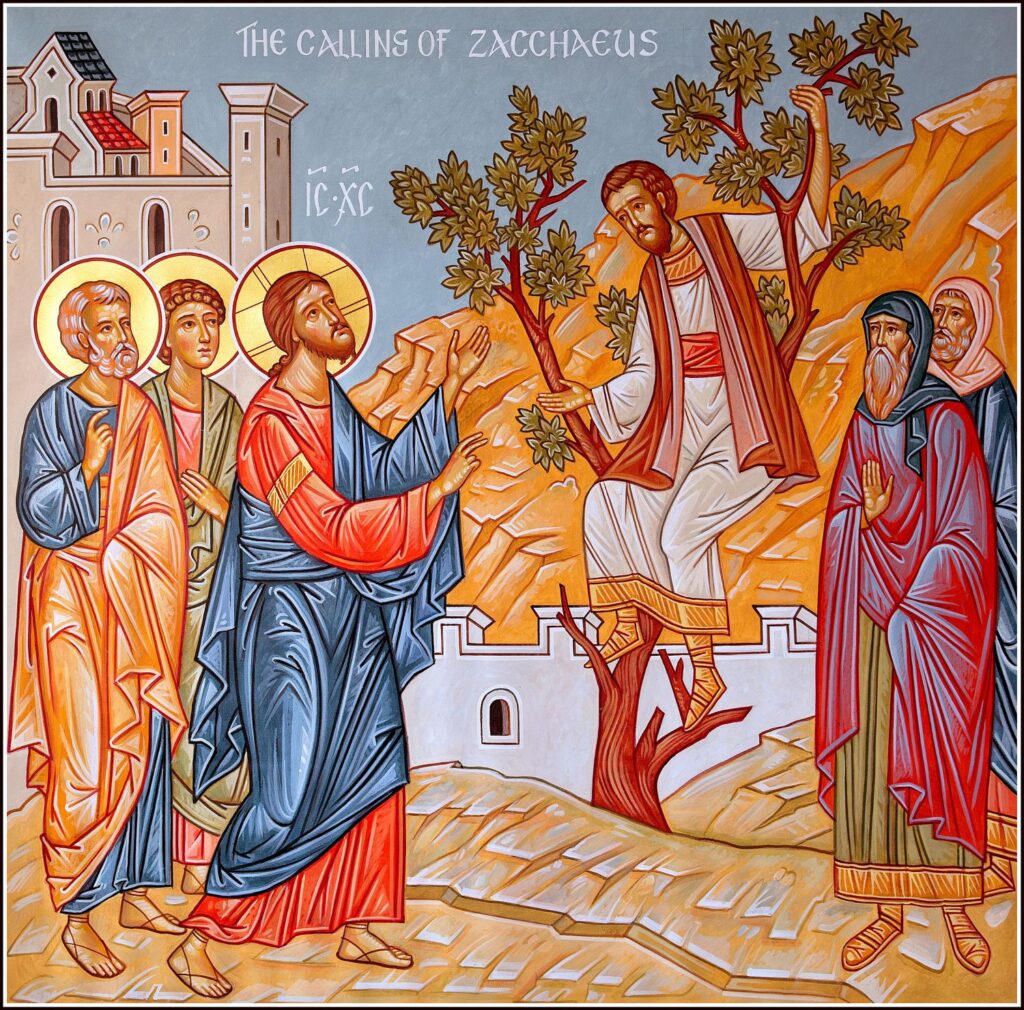In the name of the Father, and of the Son, and of the Holy Spirit, one God, Amen.

“And I, if I am lifted up from the earth,” says the Lord, “will draw all peoples to myself.” (John 12:32) Before the Lord’s Passion, Death and Resurrection he told his disciples what would happen but they did not understand. The Cross, my brothers and sisters, stands at the very centre of human existence and Christ ascends it that he might incorporate all into the Church, into life. He ascends the tree that he would descend into the very depths of Hell and despoil its might.
And in Jericho, as he journeys towards the Cross, he sees another man ascending: and this man was a sinner. Not only was Zacchaeus a sinner but a collaborator with the Roman occupation. He was the worst of the worst, no longer a member of the house of Israel but an outcast among his own people. In the poverty of his kinsmen and country-folk he had become rich.
“Sycamore” is confusing for us: it does not mean what we think of as a Sycamore in Britain but is a type of fig tree. And when references to figs are made they should point us to their first occurrence in Genesis, “Then the eyes of both of them were opened, and they knew that they were naked; and they sewed fig leaves together and made themselves coverings.” (Genesis 3:7) So figs are a reference to our fallen nature and Zacchaeus is literally trampling down his fallen nature to get even a sighting of the Lord. He is lifting himself up on his tree as Christ will be lifted on his. And the Lord responds. He recognises how Zacchaeus is offering himself even in a small way and that very day enters his house.

And now we see a great marvel, one for which those with Christ cried out, “Who then can be saved?” Before arriving in Jericho Christ had told the crowd “For it is easier for a camel to go through the eye of a needle than for a rich man to enter the kingdom of God.” Zacchaeus has been proclaimed a true son of Abraham, not because of his lineage but by his faith. His entry into the Kingdom—the camel now passing though the eye of a needle—shows that with God all things are possible. (see Luke 18:24ff)
The Lord, my brothers and sisters, only promises those who follow him a cross: “If anyone desires to come after me, let him deny himself, and take up his cross daily, and follow me.” (Luke 9:23) And Zacchaeus gives us a way for us to ascend our own cross—by trampling down the figs of our fallen nature, all that is earthly, and ascend our own tree towards the things of heaven. And as we ascend we will be as the stars (Genesis 15:5, 22:17, 26:4, Exodus 32:13, Deuteronomy 1:10), as true heirs of the promises to Abraham and the Lord will immediately enter our homes and our hearts. May we each—today and now—by trampling down that which is corrupt and turning to Christ, begin again our ascent of our own cross and be with the Lord.
May he, in whom is all authority in Heaven and on Earth, Christ our true God grant that we may be lifted up on high with him to the glory of the Father by the power and operation of the Holy Spirit. Amen.
Brethren, remember your leaders, those who spoke to you the word of God; consider the outcome of their lives, and imitate their faith. Jesus Christ is the same yesterday and today and for ever. Do not be led away by diverse and strange teachings; for it is well that the heart be strengthened by grace, not by foods, which have not benefited their adherents. We have an altar from which those who serve the tent have no right to eat. For the bodies of those animals whose blood is brought into the sanctuary by the high priest as a sacrifice for sin are burned outside the camp. So Jesus also suffered outside the gate in order to sanctify the people through his own blood. Therefore let us go forth to him outside the camp and bear the abuse he endured. For here we have no lasting city, but we seek the city which is to come. Through him then let us continually offer up a sacrifice of praise to God, that is, the fruit of lips that acknowledge his name. Do not neglect to do good and to share what you have, for such sacrifices are pleasing to God.
— Hebrews 13:7–16
At that time, Jesus was passing through Jericho. And there was a man named Zacchaios; he was a chief collector, and rich. And he sought to see who Jesus was, but could not, on account of the crowd, because he was small of stature. So he ran on ahead and climbed up into a sycamore tree to see him, for he was to pass that way. And when Jesus came to the place, he looked up and said to him, “Zacchaios, make haste and come down; for I must stay at your house today.” So he made haste and came down, and received him joyfully. And when they saw it they all murmured, “He has gone in to be the guest of a man who is a sinner.” And Zacchaios stood and said to the Lord, “Behold, Lord, the half of my goods I give to the poor; and if I have defrauded any one of anything, I restore it fourfold.” And Jesus said to him, “Today salvation has come to this house, since he also is a son of Abraham. For the Son of man came to seek and to save the lost.”
— Luke 19:1–10
